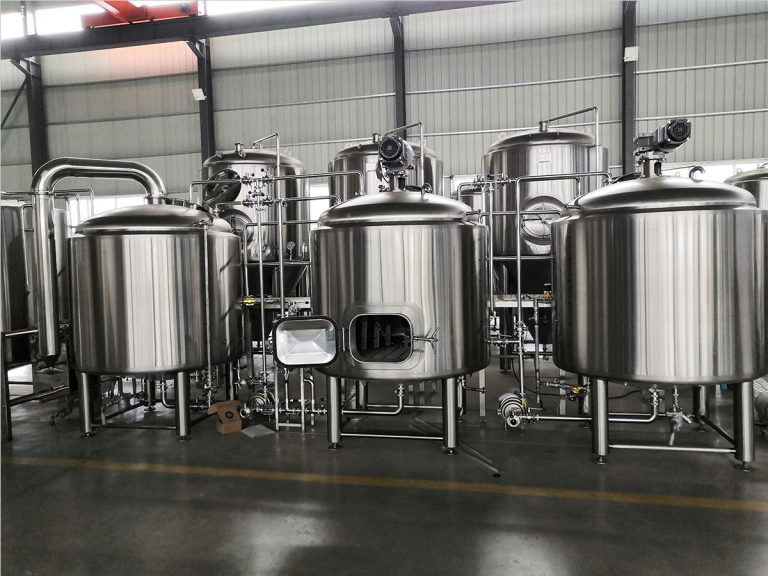
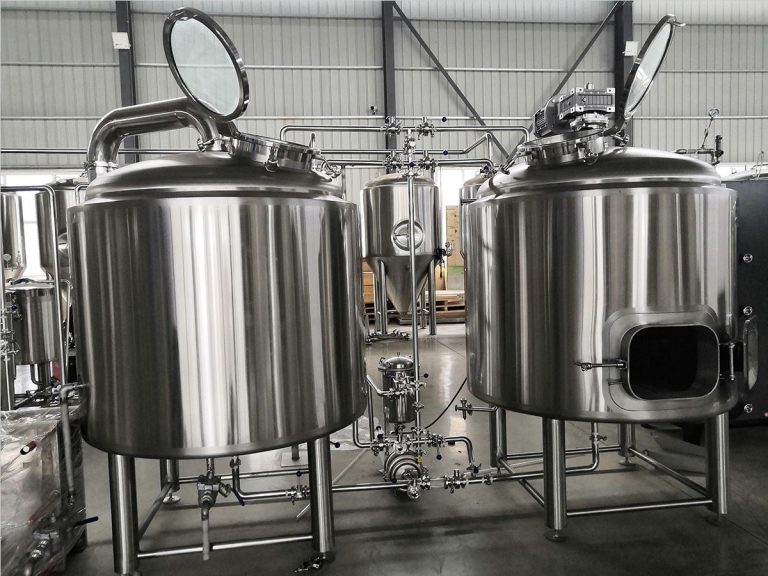
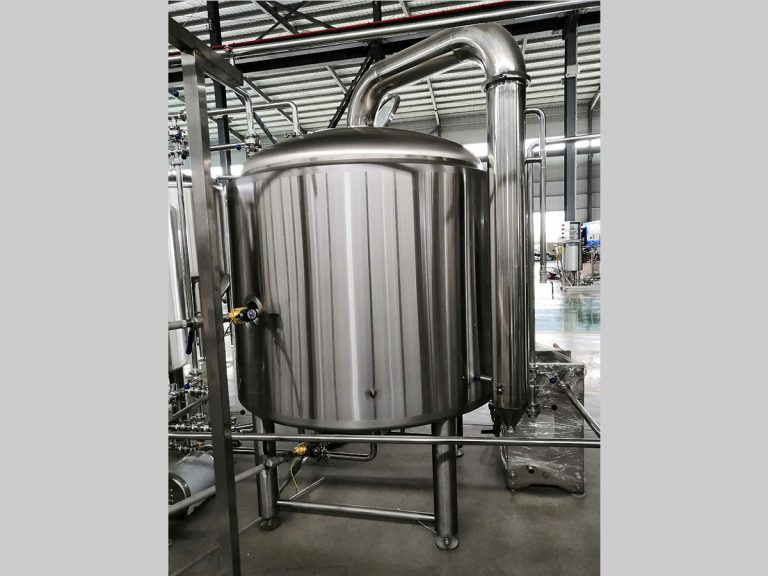
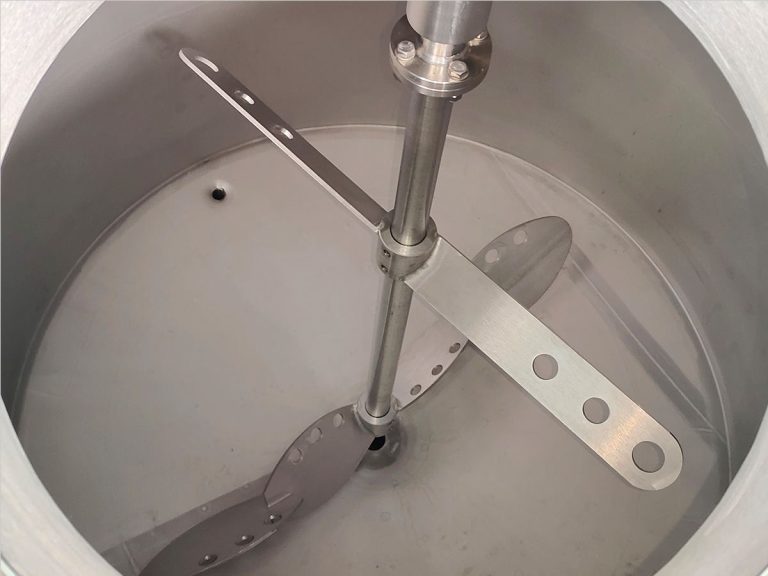
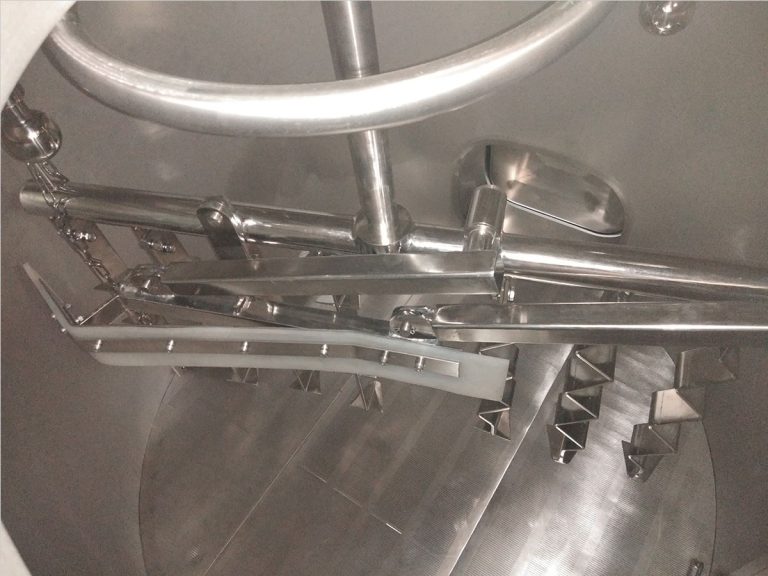
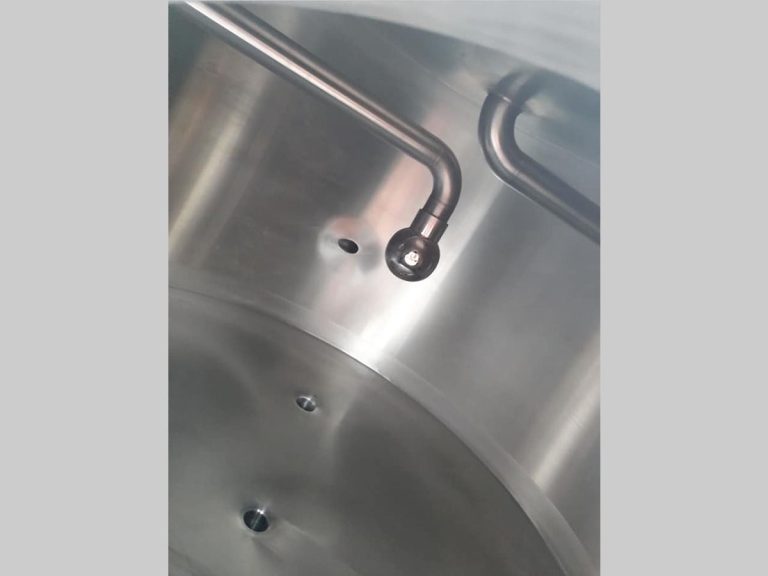
A 2000-liter (2000L) microbrewery equipment setup represents a substantial step up in scale compared to smaller brewing systems. A 2000L system allows for significantly larger batch sizes, enabling high-volume production suitable for wider distribution, bottling, and potentially tapping into regional markets.












A 2000-liter (2000L) microbrewery equipment setup represents a substantial step up in scale compared to smaller brewing systems. A 2000L system allows for significantly larger batch sizes, enabling high-volume production suitable for wider distribution, bottling, and potentially tapping into regional markets.
A 2000-liter (2000L) microbrewery equipment setup represents a substantial step up in scale compared to smaller brewing systems. A 2000L system allows for significantly larger batch sizes, enabling high-volume production suitable for wider distribution, bottling, and potentially tapping into regional markets.
2000L Three Vessel Brewhouse System
1.Introduction:
A 2000-liter (2000L) microbrewery equipment setup represents a substantial step up in scale compared to smaller brewing systems. A 2000L system allows for significantly larger batch sizes, enabling high-volume production suitable for wider distribution, bottling, and potentially tapping into regional markets.
2.2000L micro brewing system specification:
| Output/Brew | 2000L |
| Brew/Week | 6~12 |
| Output/Week | 120HL~240HL |
| Electric Supply | 3phase/380(208, 415,480,575…)v/50 (60)Hz |
| Heating Source | Steam/Direct Fired Heating |
| Area Request | >120m2 |
| Brewmaster | 2 |
3.2000L Micro Brewing System Configuration:
1)Malt Milling Unit
Particle adjustable rolling crusher
Flexible or steel auger to directly lift the milled grain to mash tun
2) 2000L 2or 3 or 4Vessels Brewhouse Unit
Mash tun, Lauter tun, Boiling Kettle, Whirlpool tun in various combination
4000L Hot water tank and 4000L cold water tank for optional in special combinations
Infusion or decoction brewing methods are designed exactly
Stainless steel 304 are popular because of easy maintenance and clean
Two stages or single stage heat exchanger for wort cooling
Completely stainless steel integrated work platform
Sanitary and efficiency wort pump
All piping and fittings
3) 2000L or 4000L Fermentation Unit
Standard stainless steel conical cylindrical fermentation tanks
Single size or double size as brewhouse is common used in microbreweries
Tanks quantity is exactly calculated by fermentation cycle for various beers
All manhole, valves, pressure gauges, spunding vavle, fittings etc are included
4) 2000L or 4000L Bright Beer Tank Unit
Standard stainless steel bright tanks for beer maturation, conditioning, service, carbonation
Single size or double size as fermenter is common used in restaurant or bar
Tanks quantity is exactly calculated for various beers and the function
All manhole, valves, carbonation stone, pressure gauges, spunding valve, fittings etc are included.
5)Beer Filter Unit(optional)
Craft beer is no need filtration which will keg filling for quickly consumption
Plate-Frame or Candle type DE (diatomite earth) filter or Ceramic membrane filter is used for clarify the beer
6) Glycol Cooling Unit
Insulated glycol water tank with or without copper coil for glycol liquid holding and mixing
Efficiency chillers or refrigerators with freon to supply cooling energy
Sanitary centrifugal pump for glycol water recycle among tanks and heat exchanger
All pipes, fitting, insulation materials are included
7)Controlling Unit
Electrical controlling cabinet with temperature, on-off controlling for brewhouse
Electrical controlling cabinet with temperature, on-off controlling for cooling parts
Temperature controller, thermocouple, solenoid valves etc are included
PLC with touch screen panel for special request
8)Beer Dispense
Keg filling and washing machine
Semiauto bottling machine with rinsing, filling, capping, labeling etc
Flash pasteurizer or tunnel pasteurizer is available
9)Other Facilities
Portable or fixed CIP system for cleaning the tanks
Steam boiler for brewhouse heating
Water treatment for brew water
Oil free air compressor
4.Advantages of 2000L brewery equipment:
A 2000L brewery equipment setup comes with several advantages for brewing operations:
Increased Production Capacity: This larger capacity allows for higher production volumes per batch compared to smaller brewing systems. It’s beneficial for meeting higher demand and scaling up production.
Efficiency: Larger equipment often comes with more efficient processes, reducing the time and resources needed for brewing. This can lead to cost savings in the long run.
Consistency: Larger equipment often provides better control over brewing conditions, leading to more consistent beer batches. Consistency is crucial for maintaining the quality and taste profile of the beer.
Scalability: It offers a good balance between capacity and scalability. Breweries can expand their operations without completely overhauling their equipment, making it easier to grow the business.
Economies of Scale: Producing larger batches can lead to cost savings per unit of beer brewed. Bulk purchases of ingredients, reduced labor per batch, and streamlined processes contribute to economies of scale.
Flexibility: While it’s a larger setup, it still allows for a degree of flexibility in brewing different styles and experimenting with recipes. It provides enough room to diversify without being too restrictive.
Future-Proofing: Investing in larger equipment early on can future-proof the brewery, allowing it to handle increased demand as it grows without requiring frequent equipment upgrades.
5.What factors should be considerations about 2000L microbrewery equipment:
Several factors should be carefully considered when contemplating 2000L microbrewery equipment:
Space Requirements: Assess the available space for the brewery setup. This includes the brewing area, storage for raw materials, fermentation vessels, and packaging space. Ensure the space can accommodate the equipment comfortably.
Budget: Determine the initial investment required for the 2000L brewing equipment. Consider not only the equipment cost but also installation, utilities, maintenance, and operational expenses.
Production Capacity and Demand: Analyze the market demand and your production goals. Will a 2000L capacity meet current demand and potential future growth? Balance the production capacity with market needs.
Quality vs. Quantity: Understand the trade-off between batch size and beer quality. Larger batches might offer economies of scale but could impact the ability to experiment with smaller or specialized brews.
Utilities and Infrastructure: Assess the utility requirements such as water, electricity, and gas. Ensure the existing infrastructure can support the demands of a larger brewing system.
Operational Expertise: Larger brewing systems often require more expertise to operate efficiently. Ensure the team is adequately trained or hire experienced staff familiar with larger-scale brewing.
Maintenance and Upkeep: Consider the maintenance needs of larger equipment. Regular servicing, cleaning, and repairs are essential for optimal performance and longevity.
Regulations and Compliance: Check local regulations and compliance standards for operating a larger brewery. Permits, zoning laws, and health and safety regulations might differ for larger setups.
Expansion and Scalability: Assess the scalability of the brewery. Can the 2000L system accommodate future expansions or upgrades if demand increases?
Technology and Automation: Consider the level of automation and technology integrated into the equipment. Advanced control systems can enhance efficiency but might require additional training.
Environmental Impact: Evaluate the environmental footprint of the equipment. More significant brewing systems might consume more resources; consider sustainable practices.
Conclusion:
A 2000L microbrewery equipment setup typically includes various components essential for brewing beer on a larger scale. When setting up a 2000L microbrewery, considerations go beyond just the equipment. Factors like space, regulatory compliance, labor, raw material sourcing, and market demand also heavily influence the setup and operation of such a brewery.

Tong Brewing Is One Top Professional Designer And Supplier Of High-Quality Complete Craft Beer Brewing Equipment From China.